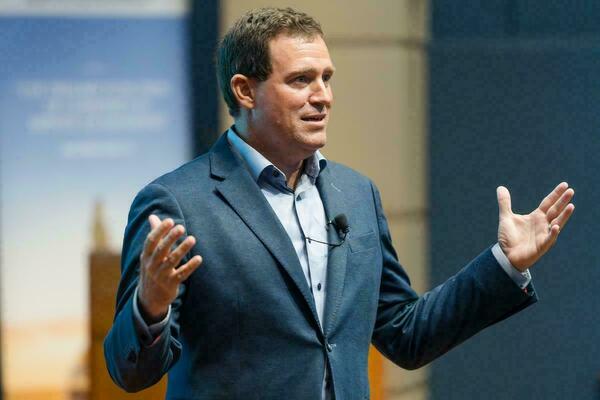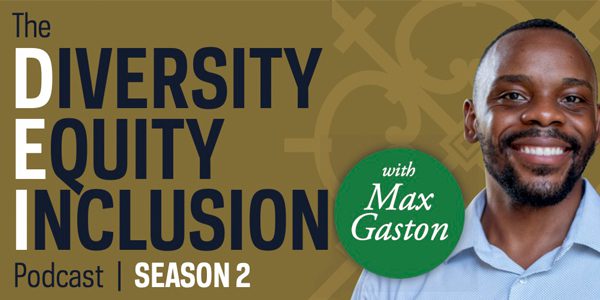The third event in the 2023 Ten Years Hence lecture series Is Globalism Dead on ThinkND featured Joshua Eisenman, Associate Professor of Politics, Keough School of Global Affairs, University of Notre Dame; Senior Fellow for China Studies, American Foreign Policy Council. In this talk, Eisenman discussed how the United States and other allies might respond to China’s economic and political goals to remain a world power. Following the formal presentation, O’Rourke and Moser answered questions from the student audience.
Eisenman began by establishing three concrete facts about China to create an unbiased foundation from which to launch into his discussion. With China’s community party having political power, their primary goal is retaining control of China, not making money or stimulating the economy. They are nationalists more than communists, and the party’s ideals continue to evolve as they have since the days of Mao Zedong. His third point regards the century of humiliation, learned by every student in China, that views the West as rapacious, dominating and destructive. These three elements are essential to understanding the historical concepts driving China’s actions and values today.
Eisenman then addressed the structural problems that are dogging China, its economy and its society. China held great economic power due to its focus on manufacturing for most of the second half of the twentieth century; however, its economic growth is stalling. The problems causing China’s decline are structural: China’s population is old, male and shrinking, which leads to greater social problems. China’s security state is expensive. And China is continuing to accrue more debt, especially after almost three years of the zero-covid policy. These three issues are preventing China from developing a high-growth economy.
Eisenman followed by considering China’s global intentions and outlook on the world. China wants to alter the existing international order and, through Xi Jinping, create a community with a shared future for mankind. This hierarchical community would place China at the center of a relation-based network, rather than relying on rules that would, in reality, implement China’s ideals across the entire globe (including dissecting the UN and making it less liberal and democratic). China believes that its model of political governance is better than Western liberal democracy, encouraging other nations to reform their governments to better imitate China’s ways. In short, China wants reform everywhere. China is also revanchist, or is advocating for the recovery of lost territories, such as their support of Russia over Ukraine. China continues to dominate its superiority over its lost regions and people and wants to retain both physical property and its political governance over places like Hong Kong, Taiwan and other Asian democratic nations. China is also engaged in intense rivalries with other countries, particularly the United States and others in the West. China has been aggressive toward America’s Asian allies, blamed the US for COVID-19, militarized the South China seas, and more. There are very few countries, if any, that currently have good relations with China, in large part because of China’s tendency to act in extremes when it comes to foreign policy. China’s aggressive and narrow view on acceptable policies will make it more difficult for China to grow, evolve and establish beneficial relationships with other world powers.
Finally, Eisenmen discussed what China’s wants and needs mean for U.S. policy. Eisenman believes that, as of now, the United States’ policy towards China is a decent option – maybe the best – given the circumstances. Change is not likely to occur at a fast pace. But we can hope that minimal, controlled efforts will eventually improve relations , or at least keep China’s opposition to the United States at bay. Eisenman recommends that the U.S. avoid pursuing regime change in China, returning to the farce of engagement, or allowing our China policy to drive our Asia policy, and thus neglect our Eastern allies. The United States’ changing relationship with China is the biggest international issue that the government must handle today.
Following Eisenman’s formal speech, he took questions from the student audience. Eisenman considered the possibility of war with China in the next decade and how both the United States and Chinese militaries might approach a full-scale war. He also explained the difference between trying to change China’s approach to foreign policy and trying to deter them from acting in complete opposition to American interests. Additionally, he discussed how individuals and corporate groups might accept business with China despite conflicting political beliefs or concerns, and what business strategies that continue to involve Chinese organizations might look like. Eisenmen concluded by unpacking China’s Africa policy, Taiwan’s possible wartime tactics, and the global climate crisis.
Visit the event page for more.










